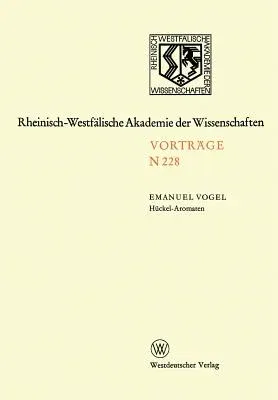Emanuel Vogel
(Author)Hückel-Aromaten: 187. Sitzung Am 4. März 1970 in Düsseldorf (1973)Paperback - 1973, 12 December 2012

Qty
1
Turbo
Ships in 2 - 3 days
In Stock
Free Delivery
Cash on Delivery
15 Days
Free Returns
Secure Checkout
Part of Series
Rheinisch-Westfälische Akademie Der Wissenschaften
Part of Series
Rheinisch-Westfalische Akademie Der Wissenschaften
Print Length
44 pages
Language
German
Publisher
Vs Verlag Fur Sozialwissenschaften
Date Published
12 Dec 2012
ISBN-10
3663053482
ISBN-13
9783663053484
Description
Product Details
Author:
Book Edition:
1973
Book Format:
Paperback
Country of Origin:
NL
Date Published:
12 December 2012
Dimensions:
24.41 x
16.99 x
0.25 cm
ISBN-10:
3663053482
ISBN-13:
9783663053484
Language:
German
Location:
Wiesbaden
Pages:
44
Publisher:
Series:
Weight:
90.72 gm

